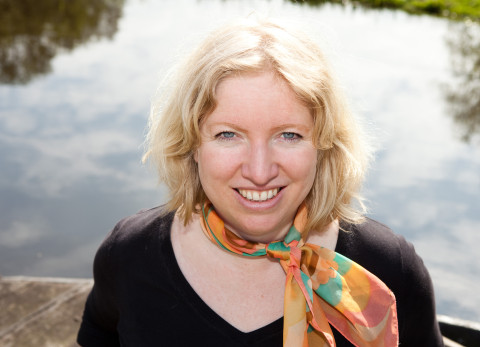Lisette De Senerpont Domis appointed to Smart Ecological Monitoring of Aquatic Systems chair

Lisette De Senerpont Domis appointed to Smart Ecological Monitoring of Aquatic Systems chair
Lisette de Senerpont Domis is to be appointed professor of Smart Ecological Monitoring of Aquatic Systems at the University of Twente as of 1 May. It's a new chair, which presents a unique opportunity to include artificial intelligence in research on biodiversity and the functioning of ecosystems.
The focus of the new chair will be on smart ecological monitoring of interactions and processes in aquatic ecosystems. Smart ecological monitoring ranges from the deployment of wireless sensor networks, automated video tracking and remotely sensed data via drones and satellites, to the deployment of citizen scientists as 'sensors'.
Through its unique position between the faculty of Geo-Information Science and Earth Observation and the faculty of Electrical Engineering, Mathematics and Computer Science, the chair will contribute to transdisciplinary research, using smart sensoring of the environment to better understand and manage water resources.
This kind of distributed smart ecological monitoring is essential for understanding the rapidly changing aquatic ecosystems in the Anthropocene.
Background
Dr. Lisette N. de Senerpont Domis is an aquatic ecologist at the Netherlands Institute of Ecology (NIOO-KNAW). She holds a PhD in Natural Sciences from Leiden University. She is interested in how different components of human-induced global change, such as climate warming, eutrophication, emerging pollutants and habitat fragmentation affect species interactions.
Motivated by the urgency of the ecological crisis facing our planet, De Senerpont Domis has become increasingly interested over the years in operationalising ecological principles for the management and conservation of aquatic ecosystems.
Social impact
"Being appointed to this chair means a lot to me", says De Senerpont Domis. "It gives me even more opportunities to contribute to major societal challenges. In my work, I try to integrate smart ecological monitoring techniques in order to translate fundamental scientific insights and thus make a social impact. An example is the use of citizen science, to map the decomposition rate of water on a continental scale and to make people aware of water use."
"Smart ecological monitoring is of paramount importance to a proper understanding of the complexity of aquatic systems," adds NIOO director Geert de Snoo. "With this collaboration of NIOO and Twente University, we combine ecological knowledge with knowledge on sensor technology and data science. My hope is that in this way, we will contribute to the biodiversity management of Dutch waters."
- University of Twenty website
- The new chair operates on the boundary of two faculties: ITC and EEMC (research group Pervasive Systems)
